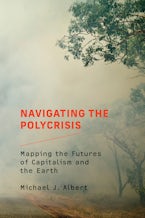Global Governance of Hazardous Chemicals provides an illuminating account of the evolution of the global chemicals management regime. Selin's analysis of the agreements that make up this regime provides important insights into the role of coalitions and institutional linkages in the complex and multi-scale governance efforts aimed at improving chemical safety. Highlighting an issue that to date has received less attention that it deserves, this book will be an invaluable resource for scholars and practitioners in the field of global environmental governance.
Jennifer Clapp, CIGI Chair in International Governance and Professor of Environmental Studies, University of Waterloo, coauthor of Paths to a Green World
A uniquely comprehensive and up-to-date analysis of the global chemicals regime…Excellent background information for scholars of environmental governance, as well as for policy makers, participants, and stakeholders in the chemicals negotiations.
Jessica Templeton
Review of Policy Research
This well-written book tackles a very important, yet often neglected, aspect of modern environmental conservation concerns.
Jolocam Mbabazi
Environmental Studies
Taking examples from the policy area of international environmental protection, this book argues that throught the institutionalization of international cooperation, in the form of international regimes, we have reached the stage of global governance. In a mixture of empirical examples and theoretical reflections, the authors...exemplify the concept in various issue areas. Particular emphasis is given to the role of the emerging global civil society... The book is accessible for students of international politics, particularly students of international environmental policy and of international processes of institutionalization, from the undergraduate level to the level of research.
Martin List, Professor of International Politics, FernUniversitaet Hagen
This rich book helps us see global governance in context - as embedded in a transnational civic society and networks of institutional linkages. those of us who study governance mainly in terms of institutional 'mechanics' may have to ask for a time-out to digest fully the profound implications of this message.
Arild Underdal, University of Oslo
This wonderfully insightful book analyzes the emerging system of global governance for environmental management and probes the implications of this system for international relations practice and theory. The authors vividly portray how humankind's efforts to treat environmental issues have led to increasingly complex interactions among international institutions, international and national non-governmental organizations, and states. They use their empirical findings to enrich regime theory and to pose fundamental questions about the evolution of the global political system. They make a vital contribution to understanding both environmental policy and international relations.
Harold K. Jacobson, Jesse Siddal Reeves Professor of Political Science and Senior Research Scientist, University of Michigan
Selin's book presents one of the most comprehensive examinations to date of the chemicals regime. Its elaborate history of this regime, as well as its clearly structured case studies, will make this work an oft-consulted reference for those active in the chemicals realm (as scholars or practitioners). It also presents a useful starting point for anyone looking to find out more about the international governance of hazardous chemicals.
Pia M. Kohler
Global Environmental Politics
Sometimes a concise, compact book can make its points more convincingly than one packed with details. That is the case here…This lucid, compelling presentation demonstrates that the time to establish a global chemical management regime is overdue.
Choice
The research that went into producing these case histories is truly impressive—this book is essential reading for scholars and practitioners working in the area of hazardous chemicals management.
Megan Mullin
Perspectives on Politics

Runner-up, 2011 Harold and Margaret Sprout Award given by the International Studies Association











